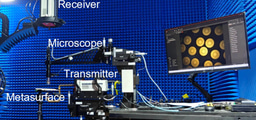Phenformin activates ER stress to promote autophagic cell death via NIBAN1 and DDIT4 in oral squamous cell carcinoma independent of AMPK
Published in Cell & Molecular Biology
Oral squamous cell carcinoma (OSCC) ranks among the most prevalent head and neck cancers and is a leading cause of oral cancer mortality in China, with a mortality rate of 50%[1,2]. Despite advances in clinical treatments[3], OSCC management remains challenging. Phenformin, a derivative of metformin, exhibits a broad-spectrum anti-tumor effect similar to metformin across various cancer types, including malignant melanoma[4,5], breast cancer[6], and thyroid cancer[7,8]. While previous research has demonstrated the suppressive effect of metformin on OSCC cells[9,10], the stronger anti-tumor effects and lower minimum effective dose of phenformin in various tumors[11] necessitate further investigation into its role in OSCC.
We conducted in vitro and in vivo experiments to verify the suppressive effect of phenformin on OSCC cell proliferation and its promotion of autophagy and apoptosis, both of which impact OSCC cell growth. Autophagy, known as a double-edged sword in tumor initiation and development, was found to play a cytotoxic role in OSCC cells induced by phenformin, with apoptosis being rescued by knocking down Beclin-1, a key autophagy-related gene.
To elucidate the major signaling pathways regulated by phenformin in suppressing OSCC cell growth, we performed RNA-seq analysis on OSCC cells treated with phenformin or control. Differential gene expression analysis revealed that genes associated with autophagy pathways were primarily affected, identifying DDIT4 and NIBAN1 as two new major downstream targets of phenformin. Knockdown experiments confirmed that phenformin-induced autophagy in OSCC cells depends on the expression of DDIT4 and NIBAN1. Further investigation revealed that phenformin inhibits the mTOR pathway, a major regulator of autophagy[12], and promotes autophagy through the DDIT4, NIBAN1/mTOR axis in OSCC cells.
Despite phenformin's classification as a classic AMPK activator, our experiments showed that its effects on DDIT4 and NIBAN1 regulation are independent of AMPK phosphorylation. Instead, phenformin regulates the expression of these genes through ATF4, a member of the stress response ATF gene family, induced by cellular stresses such as endoplasmic reticulum (ER) stress and oxidative stress[13,14]. Subsequent experiments revealed enhanced expression of ER stress indicators and activation of the PERK/eIF2α/ATF4 axis pathway by phenformin-induced ER stress. Moreover, PERK inhibitors rescued the apoptotic and autophagic activities inhibited by phenformin treatment, suggesting that phenformin induces ER stress to directly promote apoptotic and autophagic cell death independent of AMPK activation.
In summary, phenformin induces ER stress to activate the PERK/eIF2α/ATF4 axis pathway, leading to enhanced expression of DDIT4 and NIBAN1, mTOR inhibition, and promotion of autophagy to suppress OSCC cell growth. Despite concerns about lactic acidosis, phenformin remains a promising anticancer drug for OSCC treatment. Combination therapy, such as phenformin combined with BRAF and MEK inhibitors for BRAF-mutated melanoma or with asparagine intake restriction for pancreatic tumors[15], may further enhance its clinical efficacy and reduce adverse effects. This approach represents a potential avenue for future research in developing more effective anti-OSCC therapeutic strategies.
The study was just published in the International Journal of Oral Science (IJOS) [16].
References:
- Zibelman, M. & Mehra, R. Overview of Current Treatment Options and Investigational Targeted Therapies for Locally Advanced Squamous Cell Carcinoma of the Head and Neck. Am J Clin Oncol. (2016) 39, 396-406.
- Leemans, C. R., Snijders, P. J. F. & Brakenhoff, R. H. The molecular landscape of head and neck cancer. Nat Rev Cancer. (2018) 18, 269-282.
- Tan, Y. et al. Oral squamous cell carcinomas: state of the field and emerging directions. Int J Oral Sci.(2023) 15, 44.
- Tseng, H. W., Li, S. C. & Tsai, K. W. Metformin treatment suppresses melanoma Cell growth and motility through modulation of microRNA Expression. Cancers (Basel). (2019) 11.
- Kim, S. H. et al. Phenformin Inhibits Myeloid-Derived Suppressor Cells and Enhances the Anti-Tumor Activity of PD-1 Blockade in Melanoma. J Invest Dermatol. (2017) 137, 1740-1748.
- Jafari-Gharabaghlou, D. et al. Combination of metformin and phenformin synergistically inhibits proliferation and hTERT expression in human breast cancer cells. Iran J Basic Med Sci. (2018) 21, 1167-1173.
- Coperchini, F. et al. The anti-cancer effects of phenformin in thyroid cancer cell lines and in normal thyrocytes. Oncotarget. (2019) 10, 6432-6443.
- Park, S., Willingham, M. C., Qi, J. & Cheng, S. Y. Metformin and JQ1 synergistically inhibit obesity-activated thyroid cancer. Endocr Relat Cancer. (2018) 25, 865-877.
- He, Y. et al. Metformin Combined with 4SC-202 Inhibited the Migration and Invasion of OSCC via STAT3/TWIST1. Onco Targets Ther. (2020) 13, 11019-11029.
- Wang, Y. et al. Metformin inhibits mTOR and c-Myc by decreasing YAP protein expression in OSCC cells. Oncol Rep. (2021) 45, 1249-1260.
- Janzer, A. et al. Metformin and phenformin deplete tricarboxylic acid cycle and glycolytic intermediates during cell transformation and NTPs in cancer stem cells. Proc Natl Acad Sci U S A. (2014) 111, 10574-10579.
- Kourelis, T. V. & Siegel, R. D. Metformin and cancer: new applications for an old drug. Med Oncol. (2012) 29, 1314-1327.
- Rozpedek, W. et al. The Role of the PERK/eIF2α/ATF4/CHOP Signaling Pathway in Tumor Progression During Endoplasmic Reticulum Stress. Curr Mol Med. (2016) 16, 533-544.
- Wang, X. et al. ATF4 Protects the Heart From Failure by Antagonizing Oxidative Stress. Circ Res. (2022) 131, 91-105.
- Krall, A. S. et al. Asparagine couples mitochondrial respiration to ATF4 activity and tumor growth. Cell Metab. (2021) 33, 1013-1026.e1016.
Zhuang, D. et al. Phenformin activates ER stress to promote autophagic cell death via NIBAN1 and DDIT4 in oral squamous cell carcinoma independent of AMPK. Int J Oral Sci. (2024) 16(1):35. doi: 10.1038/s41368-024-00297-w.PMID: 38719825.
Follow the Topic
-
International Journal of Oral Science

The International Journal of Oral Science seeks to publish all aspects of oral science and interdisciplinary fields, including basic, applied and clinical research.






Please sign in or register for FREE
If you are a registered user on Research Communities by Springer Nature, please sign in